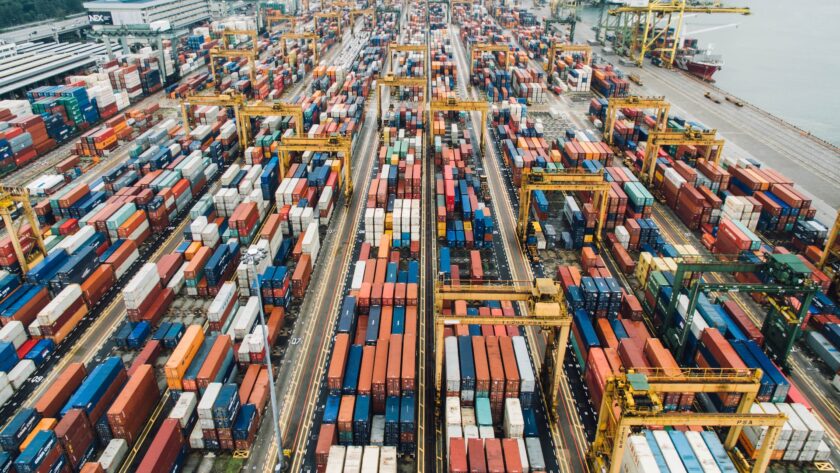Running a business can be an expensive venture. From paying salaries to utility bills, and supplies, the costs can quickly add up and go beyond the set limit. Taking this into account, it’s no wonder that businesses often seek ways to cut costs without compromising quality. One way to achieve this is by importing products from other countries.
It provides access to new markets, lower production costs, and increases profit margins. However, importing products can also be a complex process involving a myriad of regulations, costs, and logistics challenges. To succeed in international trade, businesses must understand the key factors involved in importing products and navigate these challenges effectively.
So, let’s begin!
Contents
Understanding the Regulations
Each country has its own set of regulations that govern the importation of goods, which can vary depending on the imported product. It’s essential to understand and comply with these regulations to avoid any legal or financial repercussions. Otherwise, you’ll have to face financial repercussions (penalties) or even a complete ban on importing products.
Therefore, it’s important to conduct thorough research to determine the regulations that apply to your specific product. For instance, you may need to obtain specific permits or certifications before you can import the product, or it may be restricted or prohibited altogether.
Evaluating the Supplier
It is often recommended to work with a supplier that can meet your specific needs and deliver quality products consistently. It involves assessing the reliability, reputation, and production capabilities of your potential supplier.
To be more specific, when evaluating a supplier, it’s important to consider factors such as their experience in the market, their production capacity, their location, and their reputation in the industry.
You may also want to request samples of their products and ask for references from their existing clients. Doing so will help you to assess their quality standards and whether they match your business standards. Ultimately, it will reduce the risk of delays, quality issues, and financial losses and ensure that your importing venture is successful.
Import Brokerage
Importing products from other countries can be a complex process, and one aspect that often causes confusion is customs clearance. No matter how many times you have imported goods for your business, custom clearance often creates hiccups, affecting your production and sales.
That’s why entrepreneurs often work with import brokers. They are specialized in managing the customs clearance process on behalf of the importer. Of course, before you go ahead and hire them, understanding import brokerage services is vital. It simply involves navigating the complex customs regulations and ensuring that the products being imported comply with all necessary requirements.
Import brokers help you with your ISF Filing to save you time and money while avoiding potential legal or financial penalties. Ultimately, it will ensure that your products arrive smoothly at their destination without any unnecessary delays or expenses.
Often called “10+2” because it involves 10 pieces of information from importers and 2 from the shipping company, the ISF requires importers or their representatives to provide specific details to CBP before the cargo is loaded onto a ship heading to the U.S. This helps CBP better manage and secure the goods coming into the country. However, not everybody would know How to File ISF. That is when a skilled import broker will become valuable.
They will ensure that your products arrive smoothly at their destination without any unnecessary delays or expenses.
Calculating the Costs
When importing goods from another country, there are several costs to consider, including transportation costs, customs duties, taxes, insurance, and brokerage fees. These costs can vary depending on the product being imported and the country of origin.
It’s essential to calculate all of these costs accurately to determine whether importing the product is a financially viable option. It’s also important to factor in any unexpected costs that may arise, such as delays or storage fees.
This information will help you make informed decisions about which products to import and how much to charge.
Managing the Logistics
Last but not least, managing logistics is a critical aspect of importing products and involves handling the transportation of goods from the supplier to their final destination. When managing logistics, you need to consider various factors, such as the most efficient and cost-effective mode of transportation, shipping routes, and timing of shipments.
You also need to factor in the customs clearance process and work with a reliable logistics provider to ensure the products arrive on time and in good condition.
Here, the logistics provider can help you choose the best mode of transportation, handle shipping documentation, and work with customs brokers to ensure that all legal requirements are met. For more information, click here to see the solutions provided by Go3g for your logistics needs.
In essence, proper logistics management can help streamline the import process, reduce costs, and ensure the timely delivery of products. Therefore, it is crucial to have an effective logistics management strategy when importing products.
To Sum It All Up
Navigating international trade when importing products requires careful planning and consideration. By keeping the factors discussed above in mind, you can minimize the risks and costs associated with importing and maximize your profits. With the right approach, importing products can be a lucrative business opportunity to help you grow your business and reach new markets.




